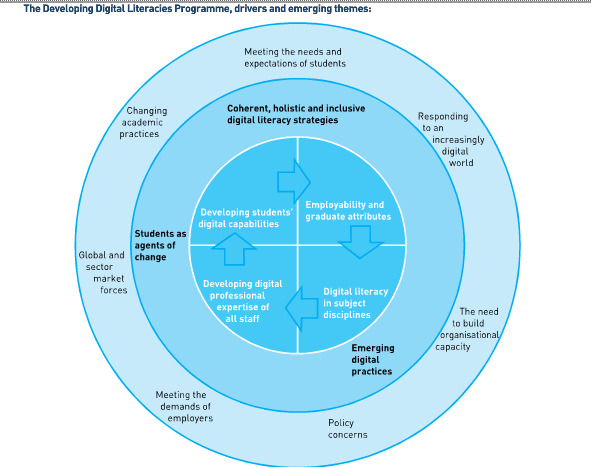
A look at the work being done by JISC in the UK.
Universities and colleges have an increasing responsibility to develop digitally literate graduates in order to meet student expectations and the demands of employers, in addition to addressing wider concerns regarding the competitiveness of the UK workforce in global markets. There is also a recognised need for further and higher education institutions to develop a digitally literate workforce, ensuring that all staff acquire the digital professional expertise needed in an environment in which research, teaching, administration and academic practices are increasingly mediated by digital technologies.
The JISC Developing Digital Literacies Programme is funding twelve projects in UK colleges and universities and collaborating with ten sector bodies and professional associations to support the development of digital literacies. This briefing paper provides a snapshot of early programme outcomes and explores the following emergent themes: graduate employability, digital literacies in the academic disciplines, emerging practices with digital technologies and the engagement of students in strategies for developing digital literacies.
The full briefing paper runs four pages, PDF.
It includes this chart that looks at ‘drivers and emerging themes’ in the program.
(Via LJ INFOdocket.)































You’d think that the UK definition of an educated person is tied to a person’s employability and income. If true, that could present a few sticky problems explaining the affluence of some semi-literate individuals and the poverty of some scholarly types. Is this an idea that started in the US?